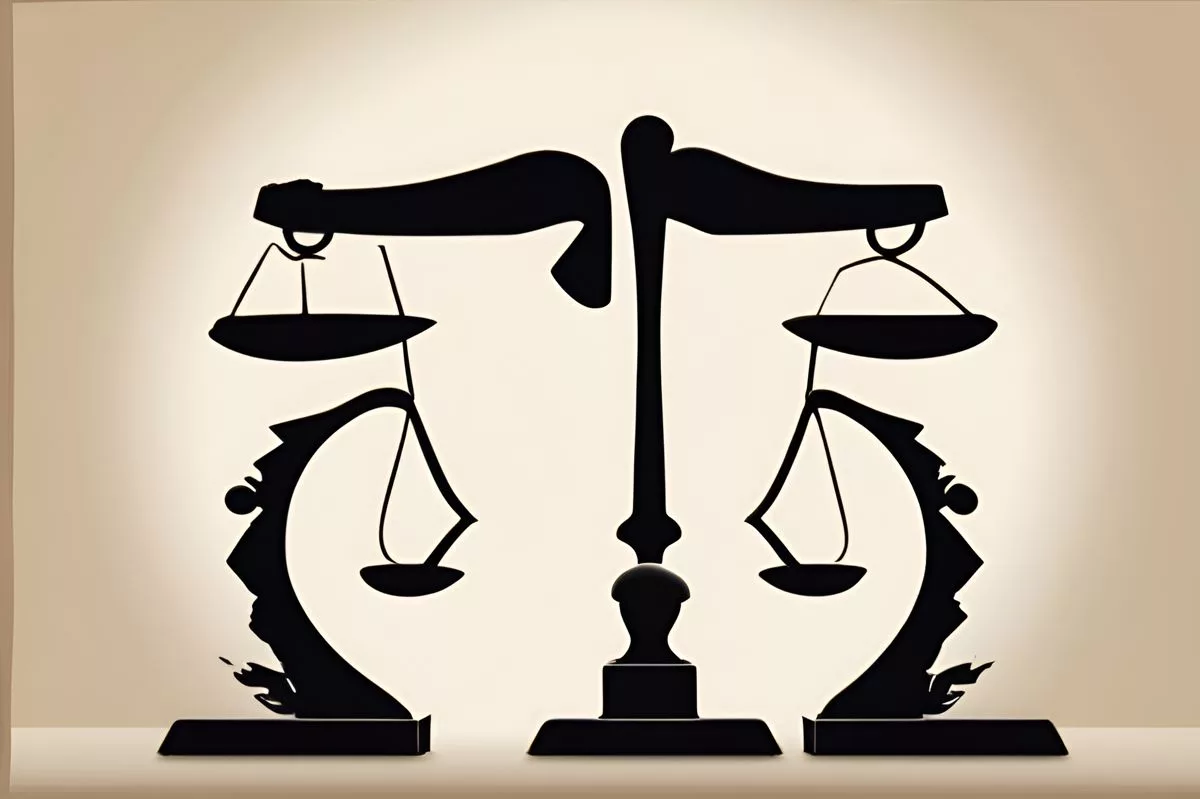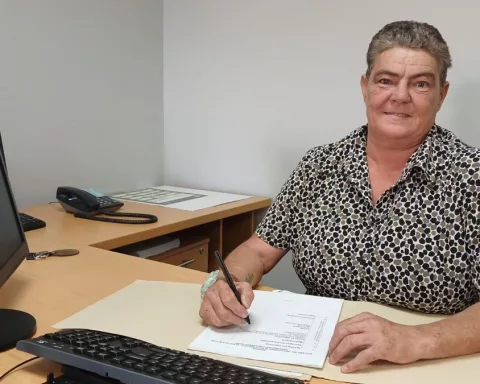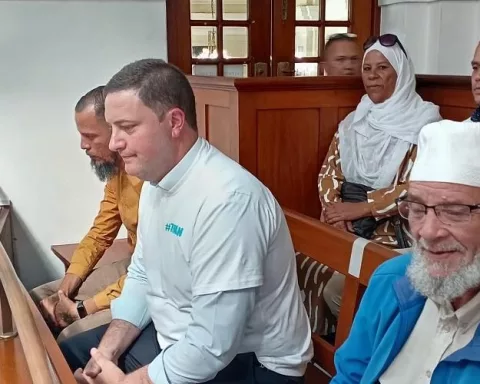Najwa Petersen’s parole case is a tangled story of crime, loss, and justice. She was convicted for killing her husband, a famous South African singer, and after serving 13 years, she was initially granted parole. However, the Minister of Correctional Services, Pieter Groenewald, stopped her release, saying it was important to consider the feelings of the victim’s family and the public. This situation raises big questions about how to help people change while also making sure victims and their families feel justice is served. As the case continues, everyone is watching to see how the system can find a balance between helping offenders and respecting the pain of those they hurt.
What is Najwa Petersen’s parole case about?
Najwa Petersen’s parole case involves complexities surrounding her conviction for the murder of her husband, Taliep Petersen. Initially granted parole, her release was halted by Minister Pieter Groenewald for further review, citing public trust and victims’ rights. The case highlights the balance between rehabilitation and justice.
The Unfolding of a High-Profile Parole Case
In the intricate landscape of South African justice, Najwa Petersen’s case stands out for its complexities, particularly concerning the parole process. Recently, Minister of Correctional Services, Pieter Groenewald, intervened to halt her parole. Initially, the Pollsmoor Correctional Supervision and Parole Board had granted Petersen parole. However, following Groenewald’s directive, the case was referred to the Parole Review Board for a more thorough reassessment. This decision effectively suspends Petersen’s parole until November 27, 2024.
Najwa Petersen was convicted for her role in the murder of her husband, Taliep Petersen, a celebrated South African singer and theatre legend. She has served 13 years of a 28-year sentence. The crime, which took place on December 16, 2006, in their Athlone residence, initially seemed like a robbery gone wrong. However, it emerged that Najwa had orchestrated the murder by hiring three hitmen. Taliep’s death was not just a personal loss but also a significant cultural blow, given his contributions to South African music and theatre.
Minister Groenewald’s decision came in response to concerns from Taliep Petersen’s family. He drew parallels with the case of Marius van der Westhuizen, where procedural discrepancies undermined public trust in the parole system. Groenewald stressed the necessity of comprehensive reviews to maintain public confidence. “The discrepancies in Marius van der Westhuizen’s case have led to a lack of public trust. As a result, I am exercising my discretion under the provisions of the Act to ensure that Parole Boards consider all reports comprehensively to prevent future occurrences of such issues,” he stated.
Rehabilitation and Reintegration: Shifting Paradigms
A crucial aspect of Najwa Petersen’s case involves rehabilitation and reintegration programs within the South African prison system. According to Singabakho Nxumalo, spokesperson for the Department of Correctional Services (DCS), parole does not reduce the sentence but changes the manner of serving it. Over the past 26 years, there has been a shift from purely punitive approaches to ones focusing on rehabilitation. This transformation aims to correct offending behavior before inmates return to society. Petersen’s involvement in various rehabilitation programs and her upcoming enrolment in pre-release programs reflect this broader shift towards rehabilitative justice.
However, the question remains: can rehabilitation coexist with justice for victims and their families? The concerns of Taliep Petersen’s family highlight this ongoing tension. While the correctional system aims to rehabilitate offenders, families of victims often seek justice and closure. This dichotomy can lead to public skepticism, especially in high-profile cases like Petersen’s.
The broader societal context also influences the parole process. South Africa’s transition from apartheid to democracy involved overhauling many state institutions, including the correctional system. This transformation aligns with global trends in criminal justice, shifting focus from retribution to rehabilitation. Historical and artistic movements, such as restorative justice, have shaped this shift. Restorative justice prioritizes healing for victims, accountability for offenders, and community involvement. While not flawless, it marks a step towards more humane and effective criminal justice systems.
The Cultural and Emotional Weight of Taliep Petersen’s Murder
Taliep Petersen’s cultural and artistic significance adds another layer of complexity to this case. More than just a victim, Taliep was a cultural icon whose works resonated deeply with many South Africans. His murder felt like a personal loss to his fans, adding emotional weight to the case and influencing public opinion and possibly the parole process.
Navigating these complexities, the parole system must balance multiple interests: the offender’s rehabilitation, the victims’ need for justice, and public trust. Minister Groenewald’s intervention in Petersen’s case underscores this intricate balance. His decision to refer the case to the Parole Review Board acknowledges the concerns of Taliep’s family and the broader public, aiming for a thorough review.
The role of media and public discourse in shaping public perception cannot be overlooked. High-profile cases like Najwa Petersen’s often receive extensive media coverage, influencing the parole process. Media narratives can highlight discrepancies, bring attention to victims’ stories, and hold the parole system accountable. However, they can also sensationalize aspects of the case, complicating objective decision-making.
Balancing Justice, Rehabilitation, and Public Trust
Navigating the parole process, particularly in high-profile cases, involves a delicate interplay of legal principles, rehabilitative goals, victim advocacy, and public trust. Najwa Petersen’s case, with its layers of personal tragedy, cultural significance, and systemic issues, exemplifies this complexity. It underscores the need for a parole system that not only rehabilitates offenders but also ensures justice for victims and maintains public confidence.
Ultimately, the goal remains to create a criminal justice system that upholds the principles of justice, rehabilitation, and public trust. The ongoing review of Petersen’s parole will serve as a critical test of whether the system can effectively balance these competing interests. It is a reminder that justice is not just a legal concept but a societal one, requiring constant vigilance, empathy, and integrity.
Minister Groenewald’s intervention highlights the importance of meticulous and comprehensive reviews in maintaining public trust. The outcome of this case will be closely watched, as it will set a precedent for how the parole system handles similar high-profile cases in the future. In the end, the justice system must strive to balance the scales of justice, rehabilitation, and public trust, ensuring a fair and equitable process for all involved.
FAQ: Najwa Petersen’s Parole Case
What is Najwa Petersen’s parole case about?
Najwa Petersen’s parole case revolves around her conviction for the murder of her husband, Taliep Petersen, a renowned South African singer. After serving 13 years of a 28-year sentence, she was granted parole, but the Minister of Correctional Services, Pieter Groenewald, intervened to halt her release for further review. This case raises important questions about balancing rehabilitation of offenders with the rights and feelings of victims and their families.
Why was Najwa Petersen’s parole halted?
Minister Pieter Groenewald stopped Najwa Petersen’s parole to reassess the situation based on concerns from Taliep Petersen’s family and the public’s perception of justice. He highlighted the need for comprehensive reviews in the parole process to maintain public trust, especially after past discrepancies in other high-profile cases.
What are the rehabilitation efforts in South Africa’s correctional system?
South Africa’s correctional system has shifted from a purely punitive approach to one focusing on rehabilitation and reintegration. Najwa Petersen’s participation in rehabilitation programs reflects this broader movement towards rehabilitative justice, which aims to correct offending behavior before inmates return to society.
How does Taliep Petersen’s cultural significance affect the case?
Taliep Petersen was not only a victim but also a cultural icon in South Africa. His murder impacted many fans and the broader community, adding emotional weight to the case. This cultural significance influences public opinion and potentially affects how the parole process is viewed and handled.
What role does public opinion play in parole decisions?
Public opinion plays a significant role in high-profile parole cases. Concerns from the victims’ families, community sentiments, and media portrayals can shape the narrative surrounding a case and influence decision-makers. In Najwa Petersen’s situation, public trust in the parole system is a critical factor in the ongoing review process.
What are the potential implications of this case for the parole system?
The ongoing review of Najwa Petersen’s parole serves as a critical test for the South African parole system. It highlights the need to balance rehabilitation, victims’ rights, and public trust. The outcome may set a precedent for how similar high-profile cases are handled in the future, emphasizing the justice system’s responsibility to ensure fairness and transparency.












